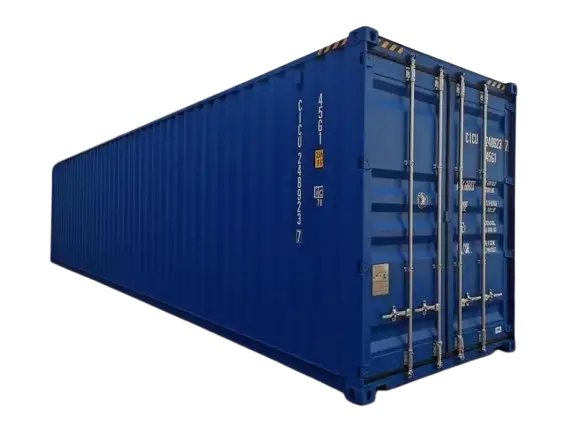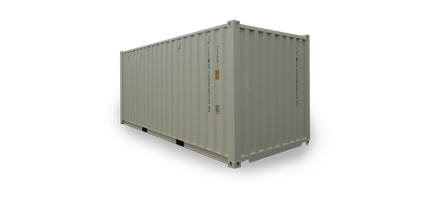How to Buy New Shipping Container 40 x 8 x 9.6 and Convert It into an Eco-Friendly Office
How to Buy New Shipping Container 40 x 8 x 9.6 and Convert It into an Eco-Friendly Office
Blog Article
The Ultimate Guide to Selecting the Right Shipping Container for Your Requirements
When it involves picking the appropriate delivery container, understanding your details needs is necessary. You'll wish to think about aspects like size, kind, and material to assure you make the very best selection. From conventional sizes to specialized options, there's a lot to discover. Plus, budgeting for both the container and any kind of adjustments can make a large distinction. Allow's damage down the key facets to assist you locate the excellent suitable for your requirements.
Comprehending Delivery Container Sizes
When you're selecting a delivery container, understanding the different sizes offered is essential for making the right decision. Shipping containers typically come in conventional sizes of 20 and 40 feet, but you'll also find other measurements. Knowing the dimension you require depends upon what you prepare to shop or transport.If you're relocating smaller sized items, a 20-foot container may be optimal, while bigger shipments often call for a 40-foot container. The height can also differ; high cube containers offer additional upright area, which can be useful for taller goods.Before deciding, determine your cargo, and consider exactly how much space you'll need for filling and unloading. Always aspect in prospective future needs-- going with a somewhat larger container may save you headache down the line. Eventually, choosing the right dimension will boost effectiveness and assure your things are safe and secure during transportation
Kinds of Shipping Containers Available
There are numerous sorts of delivery containers readily available, each created for details objectives and cargo needs. The common completely dry container is functional, best for basic cargo. If you're delivering disposable items, consider a cooled container, which maintains a controlled temperature. For large things, high dice containers use additional elevation, fitting taller loads.If you need to carry hefty machinery or tools, level rack containers provide a sturdy base without wall surfaces. Open-top containers permit for easy loading of tall freight, with a detachable tarp covering for security. If you're trying to find versatility, consider a collapsible container that can be conveniently stored when not in use.Lastly, specialized containers like container containers are made use of for liquids, while vented containers are created for bulk cargo that needs air flow. Understanding your cargo type will assist you select the ideal container to meet your shipping needs efficiently.
Product Factors To Consider for Resilience
When selecting a shipping container, the material plays a vital role in its resilience. You'll intend to evaluate the benefits of steel versus aluminum, especially concerning deterioration resistance. Understanding these factors can assist you make an extra enlightened choice for your shipping needs.
Steel vs. Aluminum Containers
Exactly how do you choose between steel and light weight aluminum containers for your delivery requires? Beginning by considering toughness. Steel containers are robust and offer excellent strength, making them excellent for heavy lots and severe conditions. They resist damage from effects and are usually less costly, which can be a major aspect for budget-conscious buyers.On the other hand, aluminum containers are lightweight, which can save you on shipping expenses. They're much easier to navigate and are a fantastic choice if you require to transfer goods often. Nonetheless, light weight aluminum is generally more pricey and less durable than steel. Weigh your certain demands carefully, consisting of weight, expense, and the kind of cargo you'll be delivery, to make the appropriate option for your circumstance.
Corrosion Resistance Aspects
Selecting the appropriate product does not just include weight and price; corrosion resistance plays a substantial role in longevity. When choosing a delivery container, take into consideration the setting it'll deal with. Steel containers, while solid, can rust if not properly treated. Look for choices with safety coatings or galvanization to improve their life expectancy. Aluminum, on the various other hand, uses natural corrosion resistance, making it suitable for coastal areas or humid conditions. It can be much more expensive. Furthermore, assess the container's usage-- if it'll be exposed to chemicals or rough weather condition, prioritize materials that can endure these conditions. Spending in a corrosion-resistant container currently can conserve you from costly repair work or substitutes down the line. Choose sensibly for long-lasting benefits.
Modifications and Modification Options
Delivering containers aren't just for moving items; they can be changed to satisfy your certain needs via different alterations and customization choices. You can convert a standard container into a cozy workplace room, a short-lived retail shop, or perhaps an individual health club. The opportunities are virtually endless.Think regarding adding home windows, insulation, or air flow to improve convenience. You may also consider electric wiring, plumbing, or even custom-made shelving to enhance capability. If safety and security's a worry, reinforced locks can give peace of mind.For aesthetic allure, you can repaint the container or add a distinct design to make it stand out. Do not ignore flooring alternatives-- whether you desire resilient plywood or something a lot more sophisticated, it can raise the space.Ultimately, tailoring your delivery container to suit your needs can enhance functionality and develop an one-of-a-kind setting that reflects your design.
Analyzing Your Transport Demands
When it comes to using your modified shipping container, understanding your transport needs is vital. Begin by identifying what you'll be shipping-- whether it's heavy equipment, retail goods, or personal products. Each sort of cargo has various needs pertaining to dimension, weight, and accessibility.Next, take into consideration the range and mode of transport. Are you shipping locally, nationally, or globally? This influences their explanation the container's layout and performance. If you're making use of vehicles, ensure your container fits basic measurements for very easy loading and unloading.Additionally, consider transportation conditions. Will your items require special security from climate or temperature level fluctuations? If so, you might require insulation or ventilation attributes in your container.Lastly, examine how frequently you'll be delivering products. Constant deliveries might require a much more resilient and versatile container to meet continuous demands. By addressing these variables, you'll be well-prepared to select the appropriate shipping container for your demands.
Budgeting for Your Shipping Container
Setting an allocate your shipping container is necessary for making sure a smooth investing in procedure. Initially, determine just how much you can pay for to spend. Remember that rates can vary substantially based on size, problem, and kind. New containers commonly cost much more, but made use of ones can provide significant savings.Next, take into consideration any type of added prices you could incur, such as transport costs, delivery costs, and modifications. If you plan to customize the container, variable in those expenses also. Research different vendors to compare rates and locate the very best offer that meets your needs.Don' t forget to consist of any authorizations or regulations that might relate to your purchase and use of the container. By clearly describing your spending plan, you'll be much better prepared to make informed choices, guaranteeing you obtain the best container without damaging the financial institution.
Upkeep and Treatment for Longevity
To ensure your shipping container lasts for several years, regular maintenance is key. Begin by checking the exterior for rust, dents, and damages. If you identify any concerns, resolve them promptly to stop additional degeneration. Tidy the container periodically, both throughout, to get rid of dust, debris, and wetness that can result in corrosion.Ensure the doors secure appropriately and oil the joints to prevent rust and sticking. If you're utilizing the container for storage space, take into consideration adding ventilation to reduce moisture and mold development. For extra defense, use a rust-inhibiting paint or sealer annually.If your container's situated in a rough setting, like seaside areas, you might require to increase upkeep regularity. Watch on the flooring, also; any kind of signs of wear must be repaired right now. With these straightforward actions, you'll expand the life of your delivery container considerably.
Often Asked Inquiries
Exactly how Do I Locate a Dependable Shipping Container Distributor?
To locate a trustworthy shipping container vendor, start by looking into on-line testimonials, requesting for referrals from good friends or sector contacts, and contrasting prices. Constantly inspect their credentials and warranty they use quality containers that fulfill your needs.

Can I Lease a Shipping Container Instead of Acquiring?
Yes, you can absolutely rent out a shipping container rather than more information buying one. Several suppliers offer rental choices, which can save you cash and give flexibility if you just need it have a peek here for a short period.
What Permits Are Needed for Container Positioning?

Are Delivery Containers Weatherproof and Ideal for Outdoor Storage Space?
Yes, shipping containers are typically weatherproof, created to withstand severe conditions. Their durable building and construction keeps your products safe and dry, making them appropriate for outdoor storage space. Simply assure proper air flow to protect against dampness accumulation inside.
How Do I Move a Shipping Container Once Acquired?

Report this page